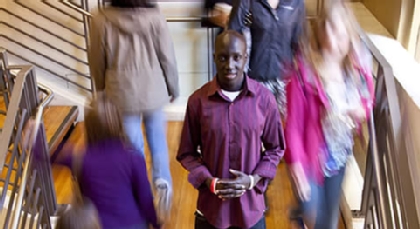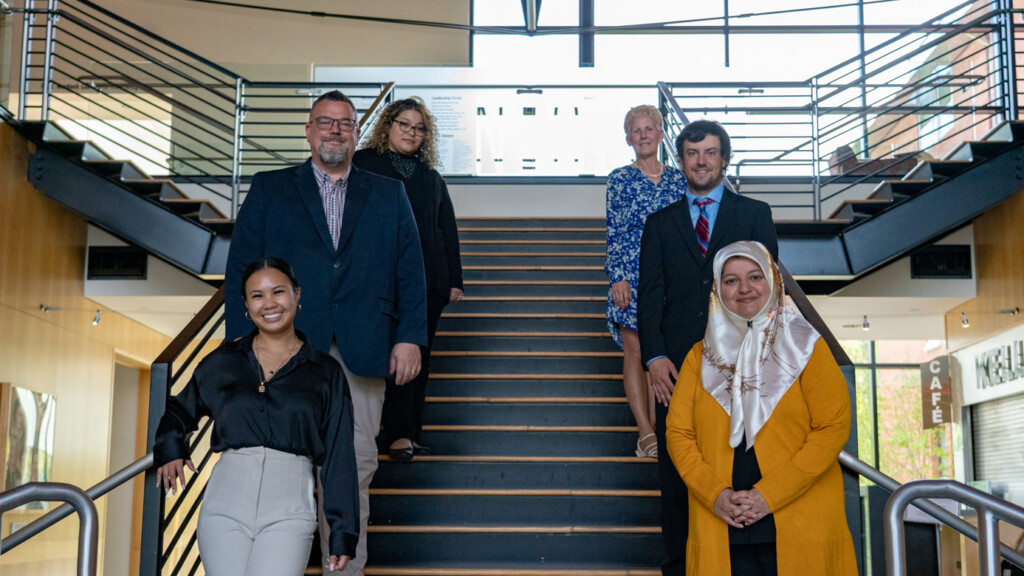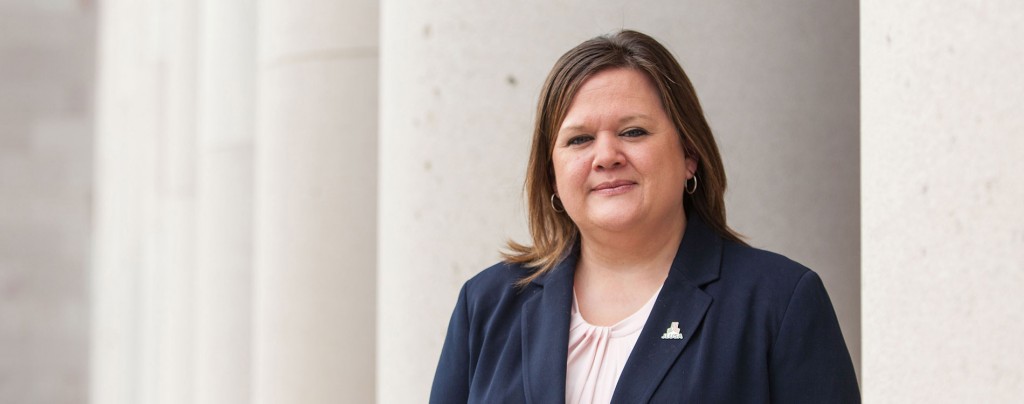Page 121 • (1,269 results in 0.066 seconds)
-

the biggest adjustment though. He struggled to communicate and understand cultural differences. He asked himself that first day of class, “How am I going to make it?” Akuien has always found a way. He has made Tacoma and PLU home, but longs to open the door of the past in hopes for a bright future. He misses the mother he hasn’t seen for what seems like a lifetime ago. Akuien hasn’t seen her face to face in more than a decade. She is back in southern Sudan, with his sister. Being with them, in one
-
p.m., Scandinavian Cultural Center, Anderson University Center. Monday, March 9: Student/Faculty Dialogue. The Division of the Humanities hosts an open, free-form discussion for students and faculty to share their thoughts and experiences related to race and ethnicity on campus and in the classroom and to identify goals for future programming and curricular development. 7 p.m.-9 p.m., Anderson University Center Room 133. Tuesday, March 17: Dr. Carolyn West: Forum on Ending Sex Trafficking. West
-

continues, it is now being paired with a refined understanding that an emphasis on international business isn’t just about understanding foreign markets and economies, but also about preparing students to thrive doing business domestically. “The rapid change of demographics in the United States will result in America becoming a minority-majority nation in the near future,” says Nargesi. “That’s why understanding and embracing different cultural mindsets, attitudes, and nuances is going to be critical
-
understanding of their cultural identities through reflection on values while learning how to create positive change in their communities. This community focuses on intersectionality across the following three sub-communities: First in the Family For students who are first in their families to attend college (first-generation students whose parents did not graduate from a four-year, degree granting institution in the U.S.) with support to connect them to resources for success in and out of the classroom
-

times, Simmons knew she was academically gifted. “One area where I had control in my life was where I performed academically,” she said. “I put all my energy into performing well.” She fondly recalls a PLU nursing professor giving her a copy of a book titled “Emotional Intelligence,” to help her navigate the soft skills she struggled with due to a lack of cultural capital. Still, Simmons had trouble keeping jobs and internships; in hindsight, she chalks it up to a lifetime of trauma she never
-
they are wearing Lute gear!1st Place Noah Dunham “Friluftsliv” This photo shows the beauty of the outdoors in Norway, and the best way to enjoy it in the winter – with skies. Friluftsliv is a common cultural practice in Norway, and is basically meaning to be active in the outdoors. Bø, Norway January 20, 20222nd Place Derek Gibson “Good Lookin’ Lindos” Although there is no visible PLU gear, this picture encapsulates Lutes Away perfectly, as nothing can sum up the Greek trip like the word “views
-
bachelor’s degree. Even though she felt out of place at times, Simmons knew she was academically gifted. “One area where I had control in my life was where I performed academically,” she said. “I put all my energy into performing well.” She fondly recalls a PLU nursing professor giving her a copy of a book titled “Emotional Intelligence,” to help her navigate the soft skills she struggled with due to a lack of cultural capital. Still, Simmons had trouble keeping jobs and internships; in hindsight, she
-
will engage a greater number of students by providing new access to their courses. Aligning Scandinavian Cultural Center programming will strengthen the connection between academic study and PLU’s heritage, for the benefit of students and the community. Additional new programs and initiatives are being explored, and I look forward to sharing news as plans coalesce. I continue to be grateful that so many members of this community take time to share your thoughts and engage in conversation about what
-
, Iyanifa, are not as numerous or as common as Babalawo in Yoruba communities. Generally, this is because few women are able to balance their domestic and maternal duties with their Ifa training. Thus, Ifanifa commonly choose to marry a Babalawo and practice in a partnership with them. The Yoruba people see the Iyanifa as the true caretakers of tradition, and for this reason only the Babalawo, who match their cultural knowledge and influence are worthy of marrying them (Olajubu 58-59). Just as the
-
participating in PLU Commencement must wear regalia, including black gowns with black caps and tassels. Masters and Doctoral candidates will wear black hoods lined with gold to represent PLU, with trim in the color corresponding to their degree. Students who have received honors from PLU, such as Wang Center and Center for Diversity, Justice, and Sustainability pins or honors cords, are permitted to wear them. Additionally, students are welcome to include adornments and items of religious or cultural
Do you have any feedback for us? If so, feel free to use our Feedback Form.


